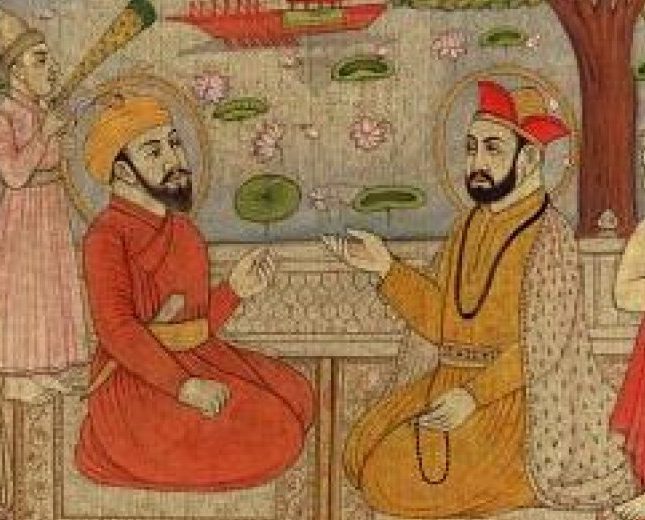NASIHAT NAMAH, lit. epistle of admonishment, is an apocryphal composition in verse attributed to Guru Nanak and is said to have been addressed by the Guru to king Croesus (Karun in Sikh chronicles). The King is advised to do good deeds when God has bestowed riches upon him. Money spent in a good cause is money well spent. Money belongs to him who spends it.
Everything in this world is transient and none should feel proud of his possessions which are bound to perish. True God alone shall abide forever. Karun could be a very rich man so named after the historical Croesus, king of Lydia, 5605-46 BC, known for his fabulous wealth.
References :
1. Kohli, Surinder Singh, A Critical Study of Adi Granth. Delhi, 1961
Nasihat Namah: Guru Nanak’s Timeless Admonishment
Nasihat Namah, literally meaning “Epistle of Admonishment,” is an apocryphal composition in verse attributed to Guru Nanak. Although it does not belong to the canonical Guru Granth Sahib, this text has garnered attention for its incisive ethical teachings and serves as a reflective guide on righteous living.
An Epistle of Ethical Guidance
In Nasihat Namah, Guru Nanak is traditionally said to have addressed King Croesus—known as Karun in Sikh chronicles. In this composition, Guru Nanak offers a timeless admonishment to the king, urging him to use his wealth for good deeds and benevolent purposes. Through straightforward and vivid language, the Guru advises that:
- Wealth is Transient: Nothing in this world is permanent. Material riches, no matter how abundant, will eventually fade, and true, everlasting value is found only in spiritual pursuits and righteous conduct.
- Responsible Use of Resources: Money and resources, when spent in the service of good causes, are elevated from mere possessions to instruments of divine benevolence. The text emphasizes that wealth is not an end in itself but a means to foster well-being and justice in society.
- Humility and Divine Focus: Every individual, regardless of status, should remain humble and remember that all worldly possessions ultimately belong to God. This realization underscores the necessity for both personal humility and social accountability. Literary and Didactic Qualities
The composition’s style is notable for its clarity and poetic simplicity. Using everyday imagery and metaphors, Nasihat Namah makes profound ethical and spiritual insights accessible to its audience. Its language—a blend of rich devotional sentiment and pragmatic instruction—reflects Guru Nanak’s enduring ability to communicate sophisticated spiritual truths in an uncomplicated manner.
- Didactic Purpose: The epistle is meant not simply as a reprimand but as a practical guide for ethical living. It calls upon the reader to reflect on the fleeting nature of wealth and the enduring power of goodness.
- Cultural Resonance: By addressing a historical figure like King Croesus, the text also serves as a historical document of how early Sikh thought engaged with broader cultural and economic issues. It highlights the idea that leadership, investment in the common good, and spiritual mindfulness are interlinked qualities essential for a thriving society. Enduring Relevance
Despite its apocryphal status, Nasihat Namah retains a powerful influence due to its universal message. Its exhortations to live with integrity, cultivate compassion, and manage resources wisely are as pertinent today as they were in the times of Guru Nanak. The epistle invites modern readers to reexamine the value of material success versus moral and spiritual wealth, making it a timeless piece of ethical literature.
By challenging its audience to look beyond the temporary allure of worldly riches, Nasihat Namah remains a cornerstone for those seeking to embrace a life of purpose and divine consciousness. The compendium of advice within its verses stands as a testament to Guru Nanak’s visionary thinking—a call for a society that values good deeds, humility, and spiritual insight over transient material achievements.



